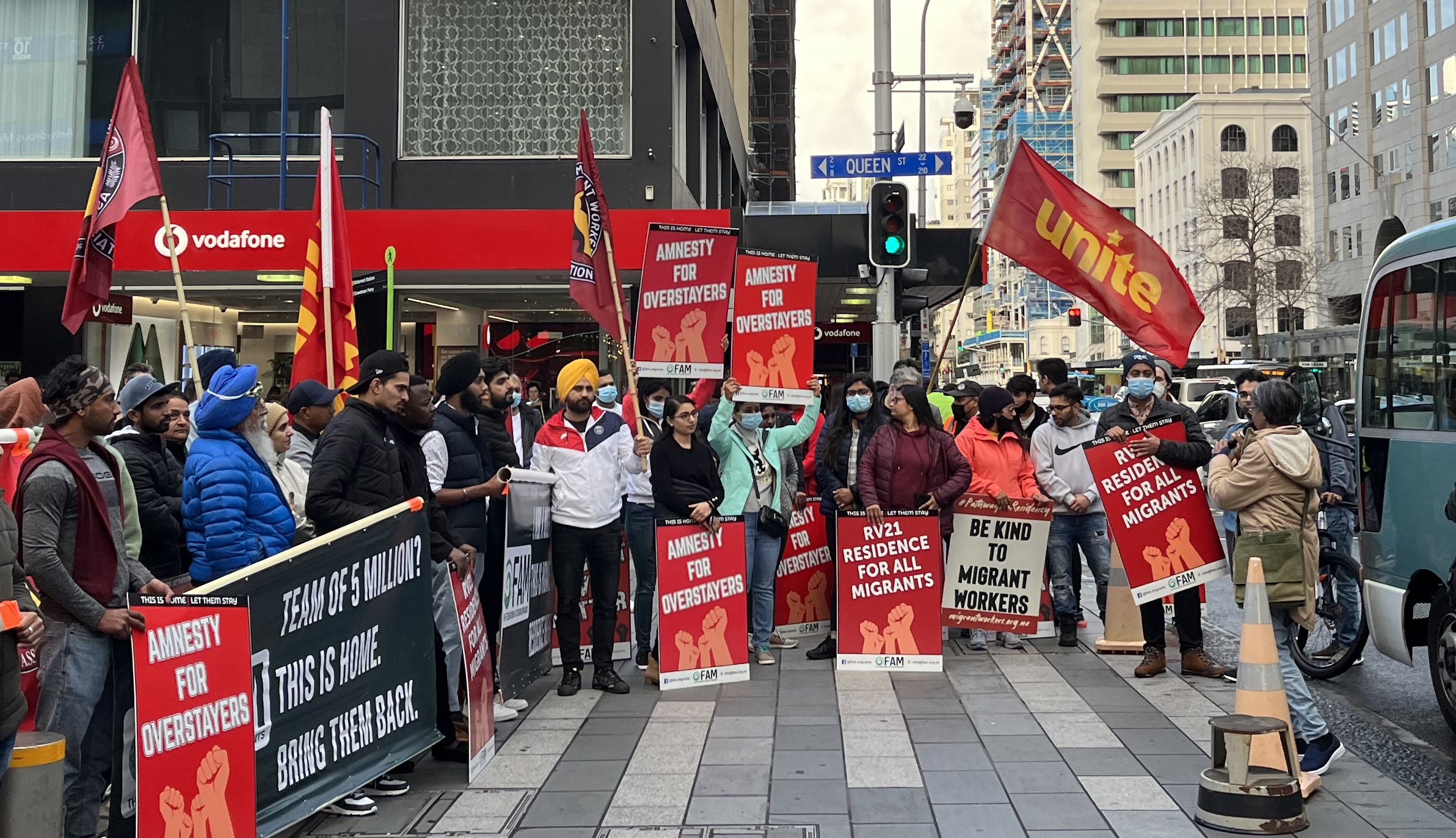The last thing resigning Immigration Minister Michael Wood did before leaving Wellington on Wednesday was announce a raft of changes to skilled migrant visas in an attempt to fill labour gaps with workers from overseas.
Along with the cap being released on the number of skilled visas, accredited employer work visas have been extended from three years to five.
READ MORE:
* Wood postpones partner visa changes until Easter
* Cabinet knew immigration changes could increase violence
A new points system is expected to make it easier for applicants to assess eligibility, and clearer pathways to residency have been opened.
But while it’s a multi-faceted set of changes that will have pressured business sectors breathing a sigh of relief, migrant advocates say it’s a &mixed bag’ that does nothing to address mounting issues of migrant worker exploitation.
Migrant Workers Association spokesperson Anu Kaloti said while businesses and some migrants would?be pleased with having more certainty around their future, the changes were?inequitable and did?nothing to free workers tied to dodgy employers for their visas.
※The policy seems more geared up towards businesses and people who have higher qualifications,§ she said. ※Immigrants who are already quite privileged, in other words, and it wouldn’t matter so much where they live in the world.§
The criteria awards points based in part on tertiary qualifications -?a bachelor’s degree is worth three points, while a PhD is worth six.
But Kaloti said many of the needed jobs in New Zealand didn’t?necessarily rely on academic qualifications.?
In a busy kitchen or on a construction site it’s work experience that makes the difference.
※People learn on the job #?people might have done a basic certificate but they won’t have level seven bachelor’s degrees,§ she said.
While some jobs like crane operators and drain-layers appear on the green list and are granted an easier residency pathway, others need to be in a position that pays at least 1.5 times the median wage before they are likely to start accruing points.
That’s around $45 an hour.
And Kaloti is concerned that the changes do nothing to address migrant exploitation, which she said had?been rife since employer-accreditation rule changes last July.
※We have been inundated with contact and calls from migrants who have been exploited on the accredited employer work visa that they brought in in July of last year,§ she said. ※It was meant to prevent dodgy employers from exploiting people but it looks like it might have had the opposite effect.§
Employer accreditation relied on a high-trust model, which Kaloti said was essentially companies signing online declarations saying they hadn’t run afoul of immigration law and had been running at a profit for five years.
Immigration New Zealand has launched an investigation into the conduct of around 37 accredited employers?they have identified as being of ※particular concern§.
※We take any allegations of migrant exploitation and fraud seriously and we routinely investigate businesses for compliance with immigration laws,§ a spokesperson from the agency said.
Immigration NZ also does post-accreditation checks which can happen at any time.
※As part of the application process, employers are advised that there may be follow-up checks to ensure that the undertakings and declarations that they make during the application are correct and they are a good migrant employer.§
But Kaloti said barriers to reporting for exploited workers meant most ※suffer in silence§.
※The process is still reliant on the migrant worker making a complaint to [the Ministry of Business, Innovation and Employment],§ she said. ※The checks and balances are not there and what’s there is not robust enough. Most employers are good, but the few handful who are not do exploit terribly.§
She said instead of holding them accountable, an easily-gained accreditation might?embolden a company to continue with their unfair practices.
Green Party?immigration spokesperson Ricardo Men谷ndez March urged the Government to fix the system to allow low-waged workers a pathway to residency.
※Today’s announcement entrenches the inequities that exist in the immigration system that privilege high-income workers while keeping many of our low-wage workers trapped in a perpetual state of limbo,§ he said. ※The fact that many of them would have to leave the country every five years #?risks creating an underbelly of exploited workers that are kept in precarious positions.§
He said the announcement put?into question how we define skills.
※When somebody who earns three times the median wage gets entry no matter what kind of work they are doing # what it boils down to is continuous short-term thinking by governments where they keep doing carve-outs for specific industries instead of creating broader pathways.§
In his last press release before giving?up the portfolio on Wednesday,?Wood said the changes to the skilled migrant category?would help sectors suffering as the ※global labour shortage bites§.
He said lifting the cap on the number?of visas removed an artificial constraint that prevented new migrants even when there was a ※demonstrable need§.
Wood was the architect of much of the great immigration rebalance, which has seen the Government try to shift away from a reliance on low-waged temporary migrant workers.
Whether Immigration New Zealand will continue in the same direction now that Wood has left the building is up in the air.
When questioned on whether there would be policy changes amongst Wood’s portfolios, Prime Minister Chris Hipkins said he hadn’t even had time to turn his mind to that yet.


